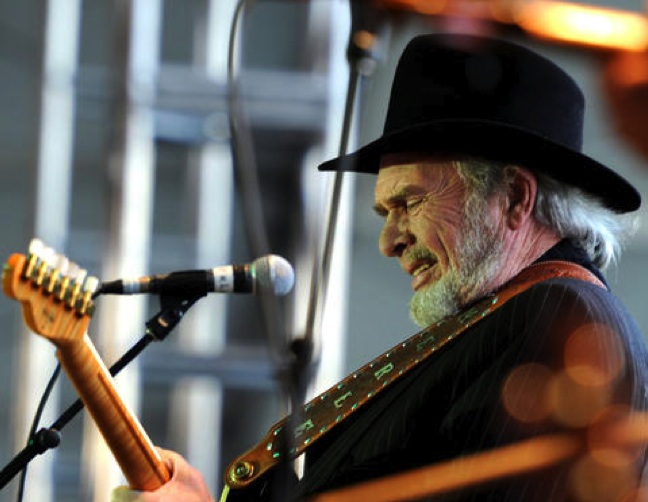(RNN) – Country music legend Merle Haggard died Wednesday morning on his 79th birthday in California.
He had suffered several health issues late in life, including pneumonia in December 2015. He described himself as being “nearly dead” with doctors concerned he had lung cancer but were unable to tell until the pneumonia was gone.
Haggard had been diagnosed with lung cancer in 2008 and underwent surgery. He had a history of alcohol and drug abuse throughout his life and was a lifelong smoker of both cigarettes and marijuana.
During the outlaw country period of the 1960s and 70s, Haggard was one of the genre’s biggest stars. Haggard had five albums reach No. 1 in the 1960s, seven in the ’70s and another in the ’80s. In all, he had more than 30 No. 1 singles.
“We have lost an innovative member of the music community, and our sincerest condolences go out to Merle’s family, friends, collaborators and all who have been impacted by his incredible work. He will truly be missed,” Neil Portnow, CEO and president of The Recording Academy, said in a statement.
Haggard was born April 6, 1937, in Bakersfield, CA. Following his father’s death, Haggard’s childhood was marked by a series of criminal offenses and stints in juvenile detention centers. While serving time in San Quentin State Prison for theft, Haggard became inspired by Johnny Cash’s 1958 performance at the prison to join a prison band, which set him on his path to stardom.
Haggard often referenced his tough early years in his music, and said Cash encouraged him to address those struggles in song.
“I was bull-headed about my career. I didn’t want to talk about being in prison,” Haggard recalled on his website, “but Cash said I should talk about it. That way the tabloids wouldn’t be able to. I said I didn’t want to do that and he said, ‘It’s just owning up to it.’”
He later turned that period of his life into the No. 1 single Mama Tried, chronicling his life as a “rebel child” who ended up serving a life sentence despite his mother’s attempts to “steer me right” and blaming himself for his troubles.
He earned a high school equivalency degree while in prison and was inspired by fellow inmates to get his life on track before he ended up serving life in prison like the narrator of the song, which was inspired by a friend who tried to escape San Quentin and was later executed.
The No. 1 single Sing Me Back Home, which was released a year earlier, was also inspired by his friend’s execution.
After being released from prison in 1960, Haggard wasted little time pursuing a career in music. In 1965, his debut album, Strangers, reached No. 9 on the country charts. The title track from the album was his first top 10 single.
His follow up a year later, Swinging Doors, reached No. 1.
Haggard was named the entertainer of the year in 1970 following the success of Okie from Muskogee, which was an album and title track that both reached No. 1.
The song is a conservative patriotic anthem in response to the anti-Vietnam War protests of the time and was followed a year later by Fightin’ Side of Me, which expresses similar views and also reached No. 1 as an album and single.
Both songs were nominated for Academy of Country Music single of the year and song of the year in 1970 with Okie from Muskogee winning both. He won song of the year again in 1982 for Are the Good Times Really Over

